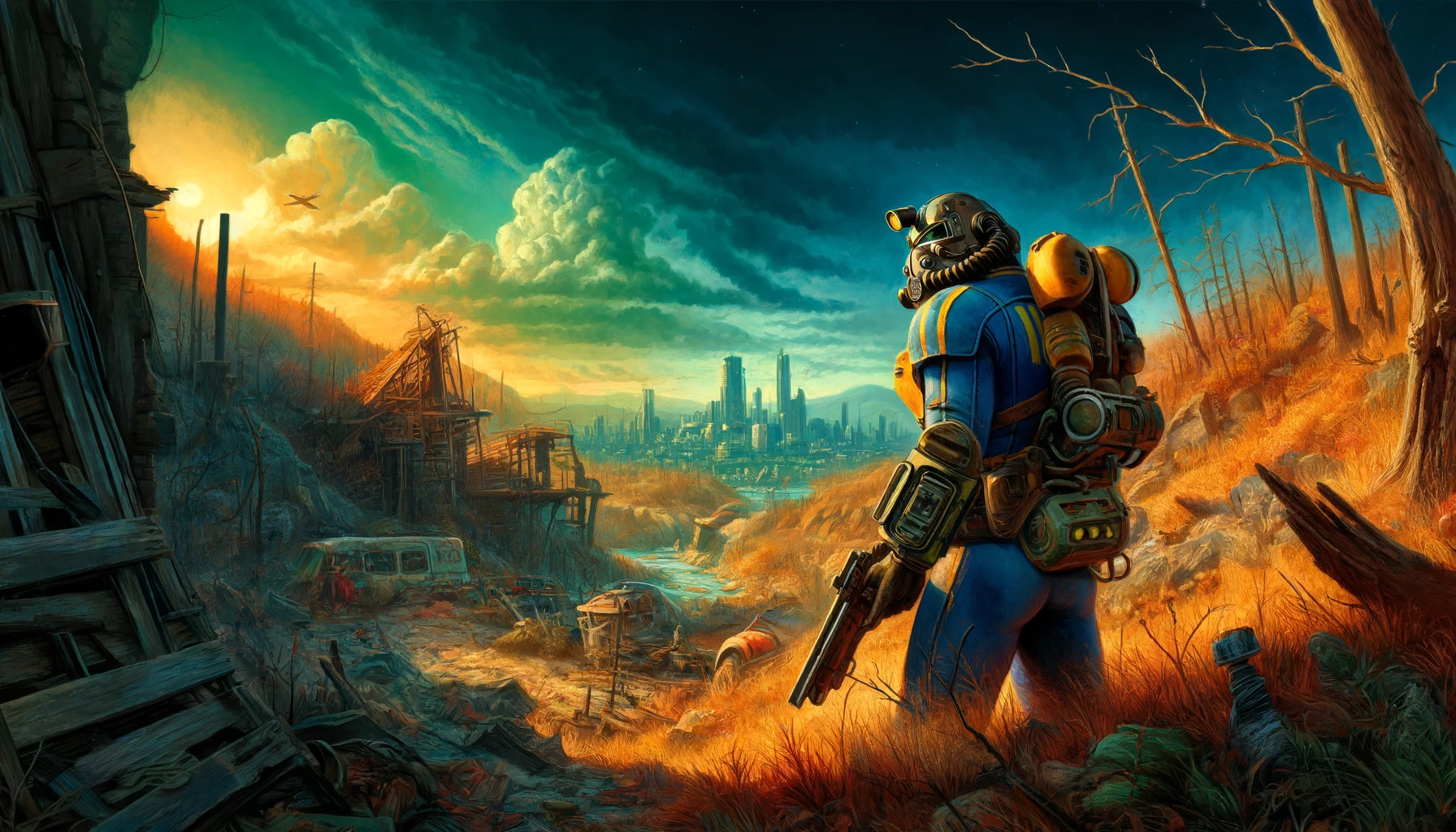
“Fallout 4” is a post-apocalyptic role-playing video game developed by Bethesda Game Studios and published by Bethesda Softworks. It is the fifth major installment in the Fallout series and was released worldwide on November 10, 2015, for Microsoft Windows, PlayStation 4, and Xbox One. The game is set in a world ravaged by nuclear war, specifically focusing on the region around Boston, Massachusetts, now known as the Commonwealth.
The narrative of “Fallout 4” starts on the morning of the nuclear apocalypse. Players begin in the year 2077, experiencing life moments before the bombs fall. The protagonist, referred to as the Sole Survivor, rushes to a fallout shelter known as Vault 111 with their family. Tragically, they are the only member of their family to emerge alive and unaltered, waking up 210 years later, into a world irreversibly changed by nuclear devastation.
Gameplay in “Fallout 4” is expansive and varied, combining elements of first-person shooters, open-world exploration, and customizable role-playing. One of the game’s hallmark features is the ability to explore the open world with few restrictions. Players can interact with various environments, collect countless resources, and engage with different factions and characters who have adapted to life after the apocalypse in unique ways.
The game’s main storyline revolves around the Sole Survivor’s search for their missing child. However, the narrative allows for a vast amount of player choice, impacting how events unfold. Decisions made by the player can lead to multiple endings, which adds to the game’s replayability. As players traverse the wasteland, they encounter various groups, including the mysterious Institute, the militaristic Brotherhood of Steel, the freedom-fighting Railroad, and the self-sufficient Minutemen.
“Fallout 4” introduces several new gameplay features to the series. Notably, it overhauls the series’ traditional leveling system. Instead of rigid skill points, players develop their character through a perk-based system tied to the game’s S.P.E.C.I.A.L. attribute system, which stands for Strength, Perception, Endurance, Charisma, Intelligence, Agility, and Luck. This system allows for highly customized character development and encourages diverse combat strategies and playstyles.
Crafting is another significant aspect of “Fallout 4.” Players can collect materials from the world to craft weapons, armor, and even entire settlements. Settlement building becomes a central part of the game, as players can create bases, manage resources, and provide for other survivors. This feature not only expands gameplay mechanics but also adds an element of strategy and management that enriches the immersive experience of the game.
Graphically, “Fallout 4” marked a significant improvement over its predecessors, offering a more detailed and visually rich post-apocalyptic world. The game’s art design captures the retro-futuristic aesthetic of the Fallout series, filled with 1950s inspired technology and culture juxtaposed against the backdrop of nuclear devastation. The world of Fallout is both grim and satirical, filled with dark humor and cultural references that enrich the narrative and setting.
The game also features an expansive soundtrack that includes both original scores and period-appropriate music. The inclusion of classic songs plays into the series’ retro-futuristic theme, providing a poignant contrast between the world that was and the world that is now.
Despite its many strengths, “Fallout 4” faced criticism for some aspects of its design and execution. Critics pointed out issues with technical glitches and AI inconsistencies, which were not uncommon in such a large and complex game. Additionally, some fans and critics were disappointed by the perceived shallowness in the dialogue system, which was simplified compared to previous titles in the series.
Nonetheless, “Fallout 4” received critical acclaim upon release and won numerous awards, including the title of Game of the Year from various outlets. It was praised for its deep open-world experience, rich storytelling, and the vast freedom it offered players.
In conclusion, “Fallout 4” stands as a testament to Bethesda’s ability to craft immersive, expansive worlds that players can get lost in. It builds upon the legacy of the Fallout series while introducing new mechanics that push the boundaries of role-playing in a post-apocalyptic setting. The game’s enduring popularity demonstrates its success in capturing the imaginations of players around the world, allowing them to explore, build, fight, and survive in a world beautifully rendered from the ashes of its former self.
Vivid illustration depicting the post-apocalyptic world of “Fallout 4,” titled “Exploring the Wasteland: A Deep Dive into Fallout 4’s Post-Apocalyptic World.” The scene captures the essence of survival and exploration in a world transformed by nuclear fallout.